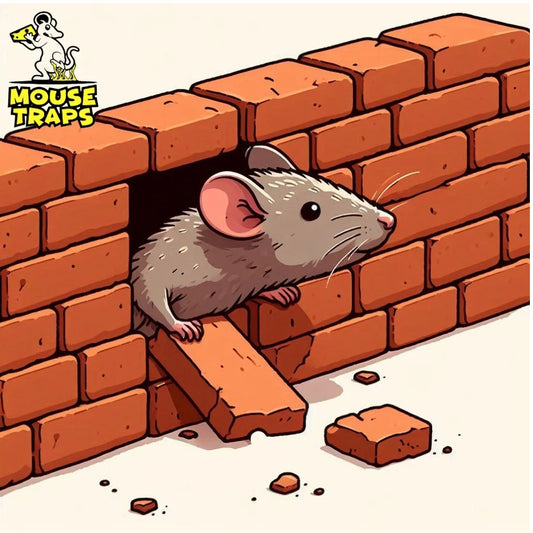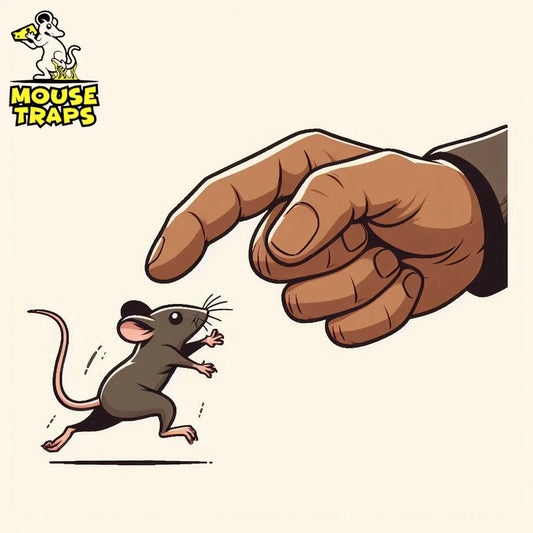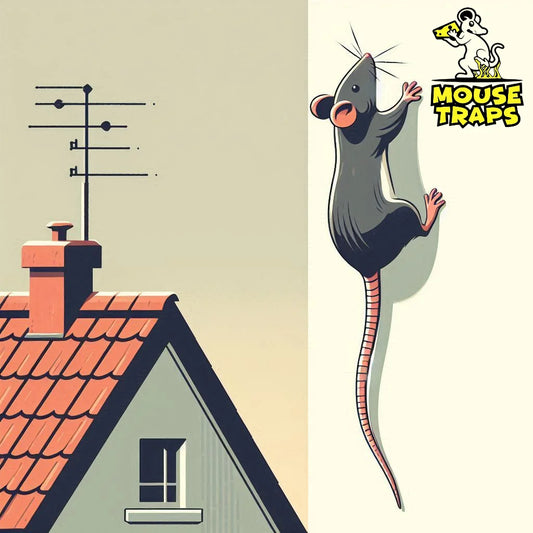Introduction:
In the quest for pest control solutions, the ethical and environmental dimensions are increasingly at the forefront of our considerations. As residents of the UK, we are not only stewards of our homes but also guardians of the delicate ecological balance surrounding us. Lets take a look, at how using Live Catch Humane Mouse Traps, for rat control impacts the environment. Can these traps do more than get rid of pests? Are they an eco friendly option? Lets explore this together.

Understanding the Need for Eco-Conscious Pest Control:
Before delving into the specifics of Live Catch Humane Mouse Traps, it's imperative to grasp the broader context of why eco-conscious pest control matters. Conventional approaches frequently utilize chemicals or deadly tools, which not endanger the intended pests but also pose threats, to unintended wildlife and the overall ecosystem. Additionally they could sustain a pattern of damage potentially leading to lasting effects, on biodiversity and environmental well being.
The Evolution of Pest Control:
Historically, pest control methods have evolved from crude, indiscriminate measures to more nuanced, humane approaches. While the primary goal remains the same – mitigating the impact of pests – our understanding of ethical responsibility and environmental stewardship has prompted a shift towards methods that prioritize compassion and sustainability. Enter Live Catch Humane Mouse Traps.
Unveiling Live Catch Humane Mouse Traps: How Do They Work?
"Live Catch Humane Mouse Traps offer an approach compared to methods of getting rid of pests by offering a way to catch rodents without causing them any harm. These traps usually have a setup that entices mice to enter without hurting them. After being caught the mice can be released back, into their environment far from human homes. This kinder method not reflects values but also reduces the unintended harm that often comes with typical pest control techniques."

Environmental Impact Assessment:
While the ethical appeal of Live Catch Humane Mouse Traps is evident, it's essential to evaluate their environmental impact comprehensively. At glance these traps seem like an option instead of using chemicals.. Upon inspection there are subtleties that should be taken into account.
1. Reduction of Chemical Exposure:
One of the most significant advantages of Live Catch Humane Mouse Traps is the elimination of chemical exposure in the pest control process. Unlike chemical pesticides or rodenticides, which can linger in the environment and pose risks to non-target organisms, these traps operate without the use of toxins. This decrease, in contamination is advantageous not for animals but also, for human well being as it lowers the risk of additional pollution.
2. Preservation of Non-Target Species:
Traditional pest control methods often result in unintended casualties among non-target species. Birds of prey, for instance, may ingest poisoned rodents, leading to secondary poisoning and population declines. By choosing Live Catch Humane Mouse Traps homeowners can reduce these dangers. Help protect the diversity of wildlife in their area.

3. Mitigation of Pest Resistance:
Another ecological benefit of Live Catch Humane Mouse Traps lies in their potential to reduce the development of resistance among rodent populations. Chemical pesticides and rodenticides, when used extensively, can exert selective pressure, favoring the survival of individuals with genetic resistance. Over time the potency of these substances may decrease, resulting in increased usage and environmental impacts. On the hand non lethal traps present an eco friendly solution by avoiding the development of resistance, over time.
Addressing Common Concerns and Misconceptions:
Despite their ecological merits, Live Catch Humane Mouse Traps are not without criticism or skepticism. Let's address some common concerns and misconceptions:

FAQs:
Conclusion:
In summary when it comes to utilizing Live Catch Humane Mouse Traps, for rat management the environmental implications involve aspects encompassing ethics, ecology and practicality. Although these traps present a shift from approaches their effectiveness extends beyond merely trapping rodents to promoting a mindset of kindness and eco friendliness. By adopting pest management methods individuals in the UK can protect their households and the natural surroundings, for generations. Let's tread lightly on the Earth, one humane trap at a time.




